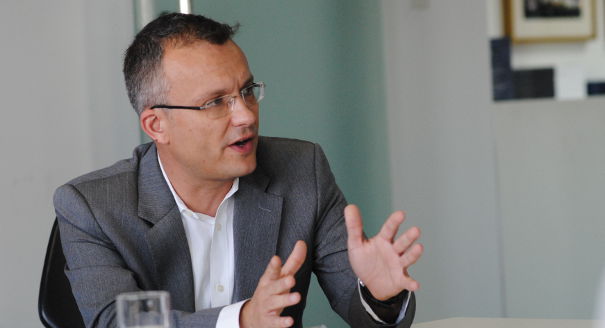Registration
You will receive an email confirming your registration.
In November 2013, Iran and the P5+1 agreed to the interim Joint Plan of Action, with the goal of achieving a long-term solution to the Iranian nuclear question. However, this interim agreement will expire on July 20, 2014, and the P5+1 and Iran have yet to reach another agreement. Numerous questions still remain about whether or not the two sides can come to a mutually agreeable solution and what exactly this would entail.
To address these questions, Carnegie–Tsinghua’s Pang Xun hosted a roundtable discussion with Alexander Glaser, an assistant professor at the Woodrow Wilson School of Public and International Affairs and the Department of Mechanical and Aerospace Engineering at Princeton University, and a group of Chinese arms control and nuclear policy experts.
Discussion Highlights
- Maintain Enrichment Capacity: Glaser stated that previous proposals to completely eliminate Iran’s capability to produce nuclear materials have been ineffective and are unrealistic. Instead, the P5+1 should direct its efforts toward ensuring that the breakout time for Iran to produce a nuclear weapon remains somewhere between six and twelve months. Iran has already invested too much into its nuclear program and is unwilling to completely forgo it.
- Redesign Arak Nuclear Reactor Core: Glaser proposed a redesign of the Arak nuclear reactor’s core to reduce the required power level and the amount of plutonium produced while maintaining the production of radio isotopes. This would allow Iran to use the Arak reactor for medical purposes while simultaneously limiting Iran’s nuclear weapons capability by reducing the production of plutonium. Glaser added that, although the details are unknown at this time, Iranian state media has reported that Iran and the P5+1 have already agreed on a redesign of the Arak facility. A Chinese participant agreed with Glaser’s proposal but added that Iran could reverse the redesign of the Arak reactor core if it wanted to.
- Newer Models: Glaser also proposed that Iran should be allowed to upgrade its IR-1 centrifuges to more efficient and reliable models. This would reduce the number of total centrifuges while maintaining the same capacity of uranium enrichment. A Chinese participant questioned the purpose and significance of explicitly allowing Iran to use newer technology if its enrichment capacity is left intact. Glaser responded that Iran is seeking to maintain its national prestige. Allowing Iran to develop its own nuclear technology permits it to deem its nuclear program a success.
- Storing New Centrifuges: Russia’s current agreement with Iran to provide fuel for the Bushehr power reactor ends in 2021. Glaser said that Iran does not wish to remain dependent on Russia for its own nuclear fuel. He proposed that Iran should be allowed to continue production of new centrifuges in the short term, adding that these machines would only be used when the Russia-Iran fuel agreement is about to expire. Glaser and the other panelists agreed that strict monitoring of the components by the International Atomic Energy Agency would be necessary to ensure that these centrifuges are not used in clandestine enrichment facilities.
- Long-Term Solution: Glaser explained that these short-term proposals would buy time for Iran, its neighbors, and the P5+1 to come to a long-term solution on an enrichment regime in the Middle East. He added that a long-term solution would likely require countries in the region to work together with the P5+1 to agree on designing a nuclear regime where there would be explicit agreements on enrichment. Possible solutions could include allowing Iran to enrich its own uranium using only foreign technology or allowing Iranian technology to only be used in enrichment facilities outside Iran.
